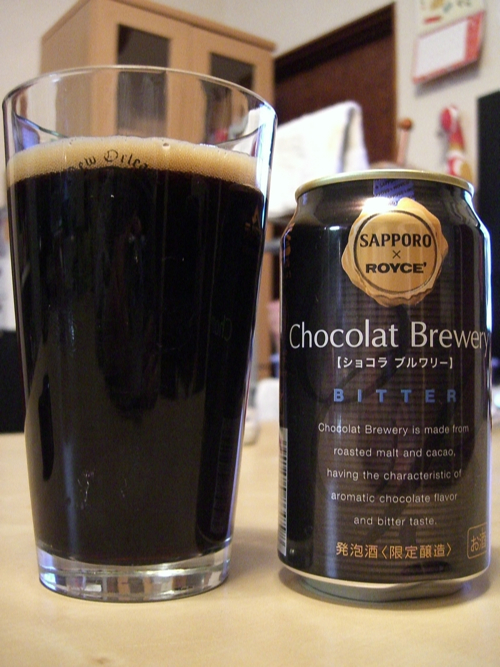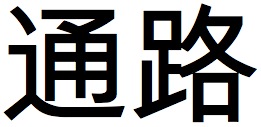I often get questions from aspiring translators about what kind of job I have and how to break into the translation industry, so I thought I’d write a FAQ-style post answering these questions once and for all. If there is anything else you are curious about, feel free to leave a question in the comments.
Q: What exactly do you do?
A: I am a project manager at a translation company in Tokyo.
Q: What is a project manager?
A: A project manager coordinates freelance translators to complete large translation projects. When we receive a translation job from a client, I work with the Japanese coordinators in my office to set up a delivery date. Then I contact freelancers and send them the material for translation if they are available. When they complete the translation, I do a close comparison of the source text and the target text and make corrections and revisions as necessary. I leave comments in Japanese for the client company if I have any questions. The Japanese coordinators then check my comments, take a final look at the file, and submit it to the client company.
You can read more about project management at the blog Essential Project Management.
Q: Wait, aren’t you a video game translator or something? You mention video games a lot.
A: Kind of…but not really. First of all, if I’m anything, it’s a video game project manager (see above). Several of our clients are video game companies, but they send us a wide variety of material, only some of which is actual video games. I check financial documents, proposals, business correspondence, video game dialogue, video game instruction manuals, iPhone apps, and more. We have clients outside of the game industry as well.
Q: So you don’t actually do any translation yourself?
A: For the most part, no. If a project is small enough or on a rush schedule, we sometimes do the translation in-house, but there is always another English native who checks the finished product before delivery.
Q: How much material do you handle every day?
A: Ideally I check 5000 Japanese characters a day (roughly 2500 English words), but this fluctuates and often we handle significantly more than 5000 characters. When I was working on a major project last summer, I was checking up to and over 10,000 characters a day (with the assistance of several hours of overtime).
Q: How much material do your translators translate every day?
A: This really depends on the material, type of file formatting, and the individual translator, but it ranges anywhere from 2500 to 5000 Japanese characters. 3500 to 4000 is probably the average amount.
Q: How did you get the job?
A: I responded to an ad in the Japan Times. I was very lucky.
Q: What do you think was the most important preparation for your job?
A: Reading. If you want any kind of job in translation, whether it’s a project manager position or a freelance translator job, you need to have the endurance to read large quantities of Japanese text and also the experience to understand most of the material without using a dictionary.
The best way to develop these abilities is to read for long periods of time. Read newspapers, novels, magazines, manga, blogs, websites – any material that keeps you interested. Practice reading for an hour, two hours, half a day, a whole day. Look up new words and write them in a notebook. I still do this.
Q: Wait, you don’t use a dictionary?
A: No, I use a dictionary when I need to, but I don’t have time to look up every word. Or even every other word.
Q: Did you really practice reading all day long?
A: Hell yeah. During the summer of 2004, I went to the library every day and read Kafka on the Shore in Japanese. I read from about nine in the morning to four or five in the afternoon with a one hour break for lunch. It took me about a month to finish the first half of the novel, but it was great practice. Too bad the book wasn’t better.
I’ve also been known to read for entire weekends.
Q: Is there anything you wish you would’ve done to prepare for your job?
A: I wish I would have played more video games in Japanese. One of my coworkers is Japanese-Canadian. He grew up in Canada, and besides speaking Japanese with his parents, a good portion of his exposure to Japanese was in the form of video games. He is a walking dictionary of video game terms. He hasn’t played every game ever made, but he is very familiar with the language used in video games and what that language means. Playing English video games will help you develop a familiarity with terminology and style (and the content of the titles themselves), but playing Japanese video games will actually teach you the language.
Q: How do I get a job as a project manager?
A: I have no idea. Look around for companies on the Internet and send off resumes and cover letters. Join the Google Group for Japanese translation – sometimes jobs get posted there. Those are my best suggestions.
Q: How do I get a job as a freelance translator?
A: Another question I can’t really answer. I can tell you how my company hires freelancers. We always accept resumes, and generally we send prospective translators a translation trial. If the trial is good enough, we add them to our list of translators, but you have to be particularly good to break into our group of regulars.
So I guess the answer is send out resumes and emails to as many translation companies as possible. Get in touch with the project managers who work at the companies. Get registered on their list. Stay in touch with them but don’t be annoying, and don’t ever come across as entitled, no matter how good of a translator you are.
Q: What else should good freelancers do?
A: Respond to emails promptly, especially if project managers are inquiring about availability. They will love you. Check in with project managers on Friday afternoons – clients often send us projects on Friday and we have to scramble to find translators before we take off for the weekend. If I was freelancing in the U.S., I might even make an effort to wake up early on Friday morning and check my mail.
Q: Wait a second. Freelancers work on the weekend?
A: Hell yeah. Project managers count on freelancers to speed up projects by working over the weekend. These days don’t get included in the number of business days we have to finish projects, so it gives us more time or lets us offer a faster delivery date to clients.
Also, one freelancer I met said that when you freelance, you pretty much take any work you can get. You’re on your own clock, and any time you aren’t translating, you’re missing an opportunity to make money. The lack of a guaranteed monthly wage must be a strong motivator.
Q: What do you think the most important part of the translation process is?
A: Revision. Understanding the Japanese is really only a third of the work. Maybe even less than that. The other part of the process is expressing the Japanese in natural English. No matter how good your Japanese is, unless you can write a decent English sentence and have a good range of expression, you won’t find any work as a translator.
I emphasize revision because it gives you the opportunity to look at the English text independently of the Japanese. When you’re reading your translation, you should be asking yourself – Does this make any sense? Could anything be clearer? Could anything be more natural? Are there any sentences that are passive that could be active? What impression will people have when they read this?
Q: Tell us a story about a good translator.
A: One of the best translators I work with loves playing games and translating them. He’s played just about every game out there, and if he hasn’t played it, he’s willing to do the research to figure it out. He even does fansubs of games on his own time.
Last summer I was coordinating a major video game. The client sent us the main script, which was enormous. I think it was over 100,000 characters. Because they wanted a quicker delivery, we split the script between two translators. We had one translate the dialogue and another translate the ト書き (とがき), which is basically the “stage direction” for the dialogue. I sent this guy the ト書き. He was so into the game and the series, though, that he went through the dialogue and pulled all the references from the scripts of previous games without me asking for anything. I then forwarded on the notes to the dialogue translator. It saved me and the other translator a lot of time and ensured that the game would be accurate. Lots of respect for this translator.
Q: Tell us a story about a bad translator.
A: We got a small job for a video game proposal at some point last spring. It was only 3000 or 4000 characters, which is a nice volume to send new recruits. I sent it to a guy who had recently passed our trial. When he sent it back to me, there were still Japanese commas and parentheses in the Powerpoint file (全角 text that he hadn’t taken the time to delete completely, the lazy bastard) and he clearly hadn’t taken the time to revise or even think about his translations, so I had to rewrite the whole thing. (On a side note, there were some places where he clearly hadn’t understood the Japanese. If you ever can’t understand the Japanese, leave a note for the project manager. We can fix it, but it helps us if you mark the places where you were unsure. Even our top translators do this – it’s nothing to be embarrassed about. Leaving a possible alternative translation in the comments is also helpful, but you shouldn’t be doing it too often.) I barely finished in time. The good news is that the proposal got picked up and we had the opportunity to translate the actual game itself. No one in my office has sent this translator another project.
The moral of these two stories is this: take advantage of any opportunity you are given. If a company gives you a chance to do some actual work, knock it out of the park. Show them that you’ve done the research and really ironed out your English. And don’t be afraid to step away from the Japanese when you’re translating for video games – they call it “localization” instead of “translation” for a reason.
Don’t forget that I do not recommend games translation. Go learn how to translate patents or economics stuff. It’s much easier and will make you a lot more money.






